Family & Politics
Explore the ways family life can affect the life of a political community.
July 12 – July 25, 2020
Washington, DC
What is the proper role of religion in public life? To what extent should religious belief shape our political discourse? How should religious leaders approach politics? How should political leaders approach religion?
This two-week course will introduce students to the perennial and contemporary political, philosophical, and moral issues that bear on the topic of religion and politics. For the first week, taught by professor Daniel Burns, students will consider the ways in which religion and politics intersect in a liberal democracy. In the second week, led by legal scholar Adam J. White, students will examine the interactions of law and religion in America, tracing Supreme Court jurisprudence and the role of the government in limiting or protecting religious freedom through history.
Image: Alexander Rider & Hugh Bridport, Camp-Meeting, c.1830 courtesy Library Company of Philadelphia
Adam White on the Supreme Court & religious liberty
This two-week course will take place in Washington, DC. It is a full-time commitment for Monday–Friday, with required sessions in the morning, afternoon, and some evenings.
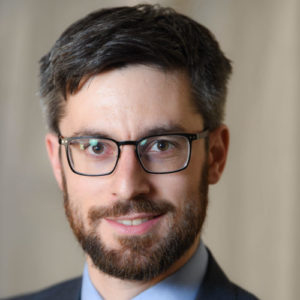
Daniel Burns is Associate Professor of Politics at the University of Dallas. He has held fellowships at the Catholic University of America and the University of Texas at Austin, and he is currently on academic leave for government service.

Daniel Burns is Associate Professor of Politics at the University of Dallas. He has held fellowships at the Catholic University of America and the University of Texas at Austin, and he is currently on academic leave for government service. His research in political philosophy is on the relation between religion and citizenship. He has recently completed a book on Augustine’s political thought and is working on a book called Against Secularism: Religious Identity and Liberal Democracy. He has also written on Al-Farabi, Thomas More, John Locke, Sayyid Qutb, the Strauss-Kojève debate, Joseph Ratzinger, Samuel Huntington, American foreign policy, and the modern Catholic church. He is a member of the Neuer Schülerkreis Joseph Ratzinger/Benedikt XVI., a Germany-based group of scholars dedicated to advancing Ratzinger’s intellectual legacy.

Adam J. White is a Resident Scholar at the American Enterprise Institute, and an Assistant Professor at George Mason University’s Antonin Scalia Law School, where he also directs the Gray Center for the Study of the Administrative State at George Mason University’s Antonin Scalia Law School.

Adam J. White is a Resident Scholar at the American Enterprise Institute, and an Assistant Professor at George Mason University’s Antonin Scalia Law School, where he also directs the Gray Center for the Study of the Administrative State at George Mason University’s Antonin Scalia Law School. He writes widely on the administrative state, the Supreme Court, the Constitution, and regulatory policy, with special focus on energy policy and financial regulation.
He is a Contributing Editor with National Affairs, The New Atlantis, and City Journal, and a contributor to the Yale Journal on Regulation‘s blog, “Notice and Comment.” He was recently appointed to the Administrative Conference of the United States, a federal advisory board focused on improving federal agencies’ practices. He also serves on the leadership council of the American Bar Association’s Administrative Law Section; on the executive committee of the Federalist Society’s Administrative Law Practice Group; and on the board of directors of LandCAN, a nonprofit organization dedicated to promoting conservation on working lands.
Prior to joining AEI, he was a Research Fellow at the Hoover Institution and an Adjunct Fellow at the Manhattan Institute. In addition to his research and writing, he practiced law with Boyden Gray & Associates, writing briefs on constitutional and regulatory issues in the Supreme Court and various other federal courts. (He continues to be “of counsel” to the firm in three pending cases involving the Consumer Financial Protection Bureau and the Federal Communications Commission.) Previously, he was a Senior Associate with Baker Botts, working on various constitutional and regulatory matters, including energy infrastructure regulation.
He received his J.D. (cum laude) from Harvard Law School, and his B.B.A. (economics) from the University of Iowa College of Business. He clerked for Judge David B. Sentelle of the U.S. Court of Appeals for the D.C. Circuit.
READINGS:
QUESTIONS:
READINGS:
QUESTIONS:
READINGS:
QUESTIONS:
READINGS:
QUESTIONS:
READINGS:
QUESTIONS:
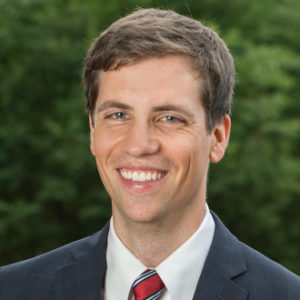
Antón Barba-Kay
Antón Barba-Kay is Associate Professor of Philosophy in the School of Philosophy at the Catholic University of America in Washington, D.C. He is finishing a book on the political philosophy of the internet, which he began while a Visiting Fellow in the James Madison Program at Princeton University.

Diana Schaub
Diana J. Schaub is Professor of Political Science at Loyola University Maryland and a member of the Hoover Institution’s task force on The Virtues of a Free Society. From 2004 to 2009 she was a member of the President’s Council on Bioethics.

Ryan P. Hanley
Ryan Patrick Hanley is Professor of Political Science at Boston College. His research in the history of political philosophy focuses on the Enlightenment. He is the author of Our Great Purpose: Adam Smith on Living a Better Life and Love’s Enlightenment: Rethinking Charity in Modernity.
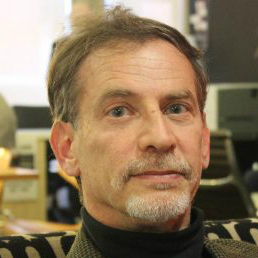
Darren Staloff
Darren Staloff is Professor of History at the City College of New York and the Graduate Center of the City University of New York. Professor Staloff has published numerous papers and reviews on the subject of early American history.

Michael Doran
Michael Doran, an expert in U.S. policy toward the Middle East, radical Islam, and the Arab-Israeli conflict, is a Senior Fellow at the Hudson Institute. He has also held a number of senior U.S. government posts related to Middle East policy and strategic communication.
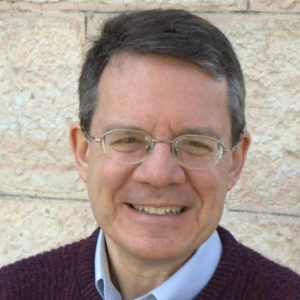
Martin Kramer
Martin Kramer teaches Middle Eastern history at Shalem College where he was the founding president and is The Washington Institute’s Koret Distinguished Fellow. He is the author of The War on Error (2016).
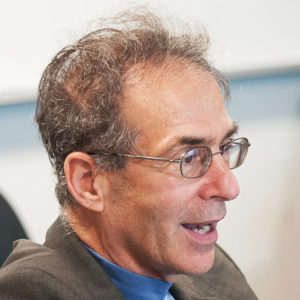
James W. Ceaser
James W. Ceaser is Harry F. Byrd Professor of Politics at the University of Virginia, where he has taught since 1976, and a senior fellow at the Hoover Institution. He has written several books on American politics and political thought, including Presidential Selection and Liberal Democracy and Political Science.
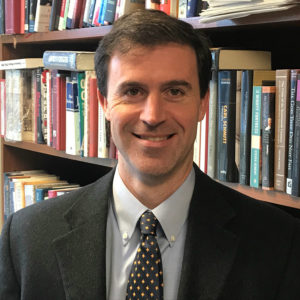
Richard M. Reinsch II
Richard M. Reinsch II is the founding editor of Liberty Fund’s online journal Law and Liberty and the host of LibertyLawTalk. He writes frequently for such publications as National Affairs, Modern Age, National Review Online, The Weekly Standard, and The University Bookman, among other publications.
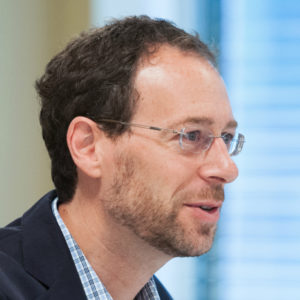
Bryan Garsten
Bryan Garsten is Professor of Political Science at Yale University. He writes on questions about political rhetoric and deliberation, the meaning of representative government, the relationship of politics and religion, and the place of emotions in political life.
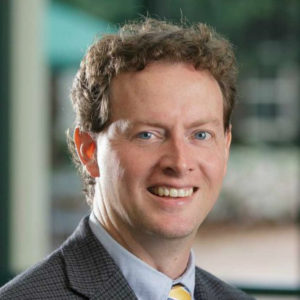
Benjamin Storey
Benjamin Storey is Associate Professor of Politics and International Affairs at Furman University. His interests focus on the history of political philosophy. He is currently completing a book entitled The Restless Age: Four French Thinkers on the Quest for Self-Understanding in an Unsettled Modernity.
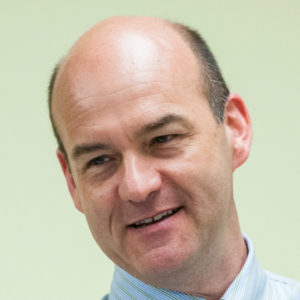
Robert C. Bartlett
Robert C. Bartlett is the Behrakis Professor of Hellenic Political Studies at Boston College. His principal area of research is classical political philosophy, with particular attention to the thinkers of ancient Hellas, including Thucydides, Plato, and Aristotle. He is the co-translator of a new edition of Aristotle’s Nicomachean Ethics.
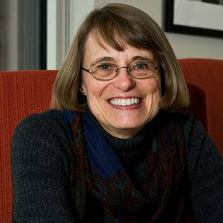
Vickie Sullivan
Vickie Sullivan is the Cornelia M. Jackson Professor of Political Science and teaches and studies political thought and philosophy. She also maintains teaching and research interests in politics and literature. She has published extensively on Montesquieu and Machiavelli and is the co-editor of Shakespeare’s Political Pageant.